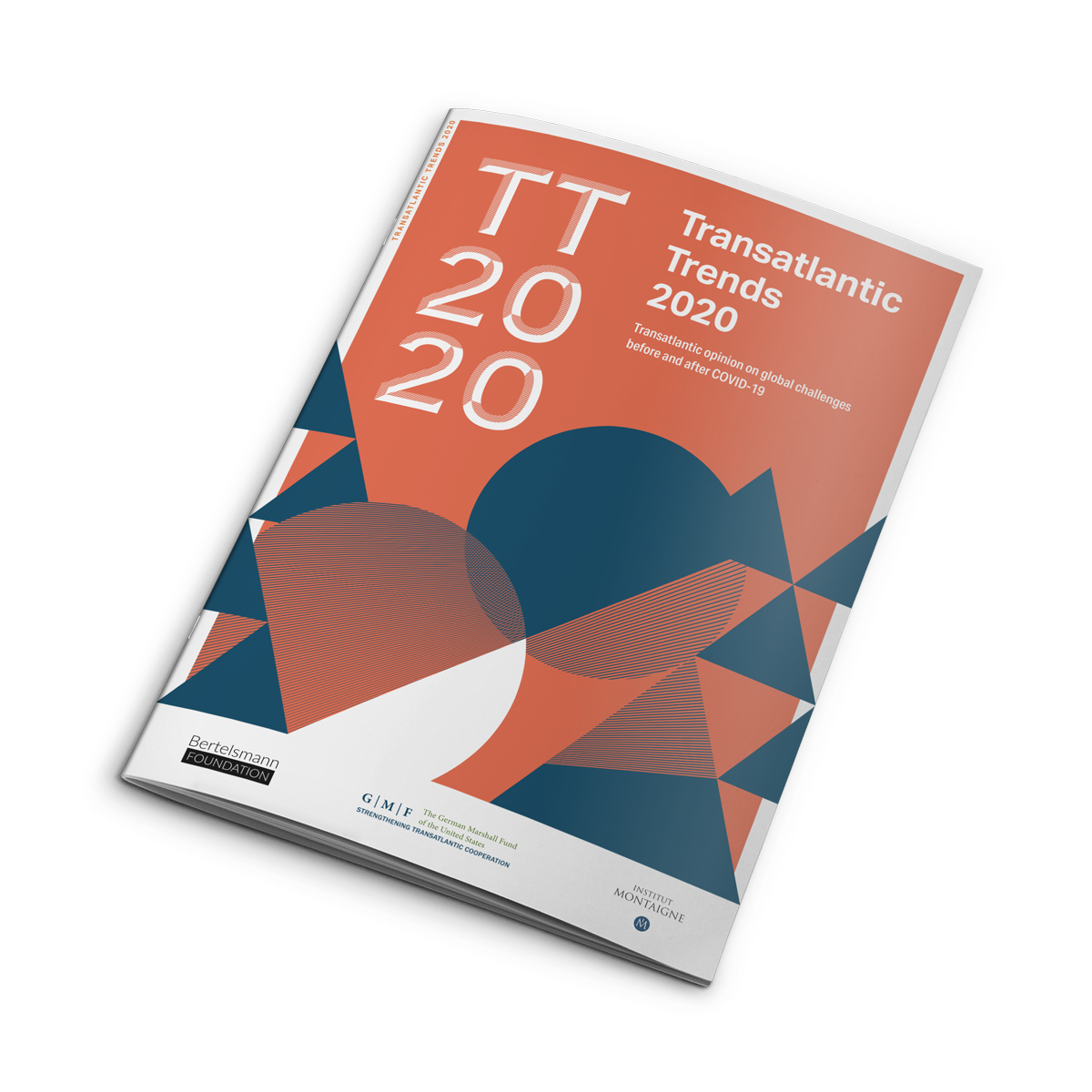Politics & Society
As crises and trade disputes escalate, accompanied by the ascendancy of populist movements and fraying international alliances, a notable geopolitical shift is underway, causing a growing divergence between the United States and its European counterparts. We closely monitor the evolving dynamics of the transatlantic relationship, analyzing how political landscapes and societal responses on both sides of the Atlantic are adapting to the complex global challenges of the 21st century. Our analysis, web-based tools, crowd-sourced forecasting and multimedia content from short explainer videos to full-length documentaries bring these challenges to the fore, conveying both the personal impact and the broader geopolitical implications of the forces shaping transatlantic politics and societies.
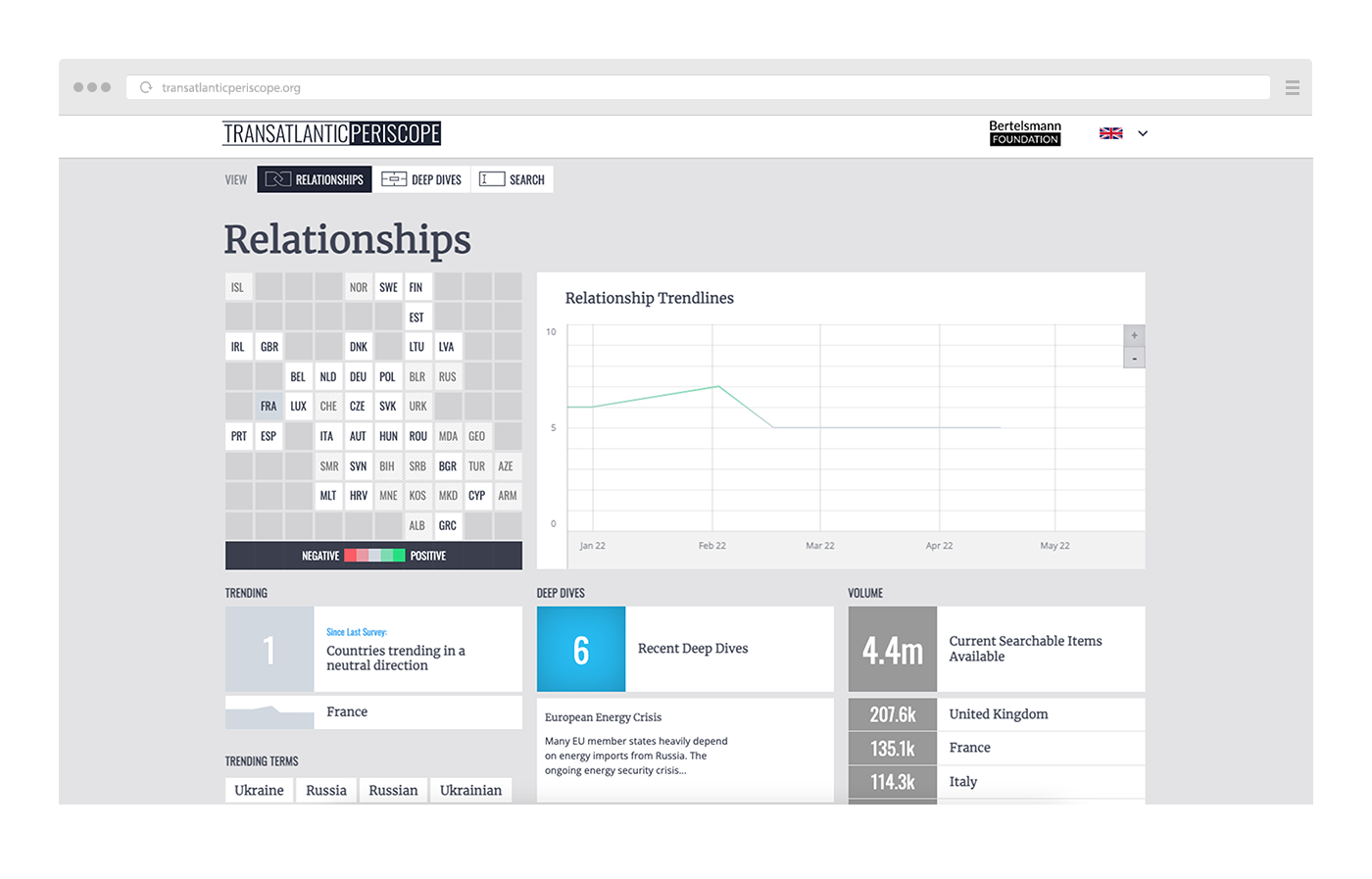
Transatlantic Periscope
The Transatlantic Periscope is an interactive, multimedia tool that brings together expert commentary, high-quality media coverage, official policy documents, quantitative data, social media posts, and gray literature.
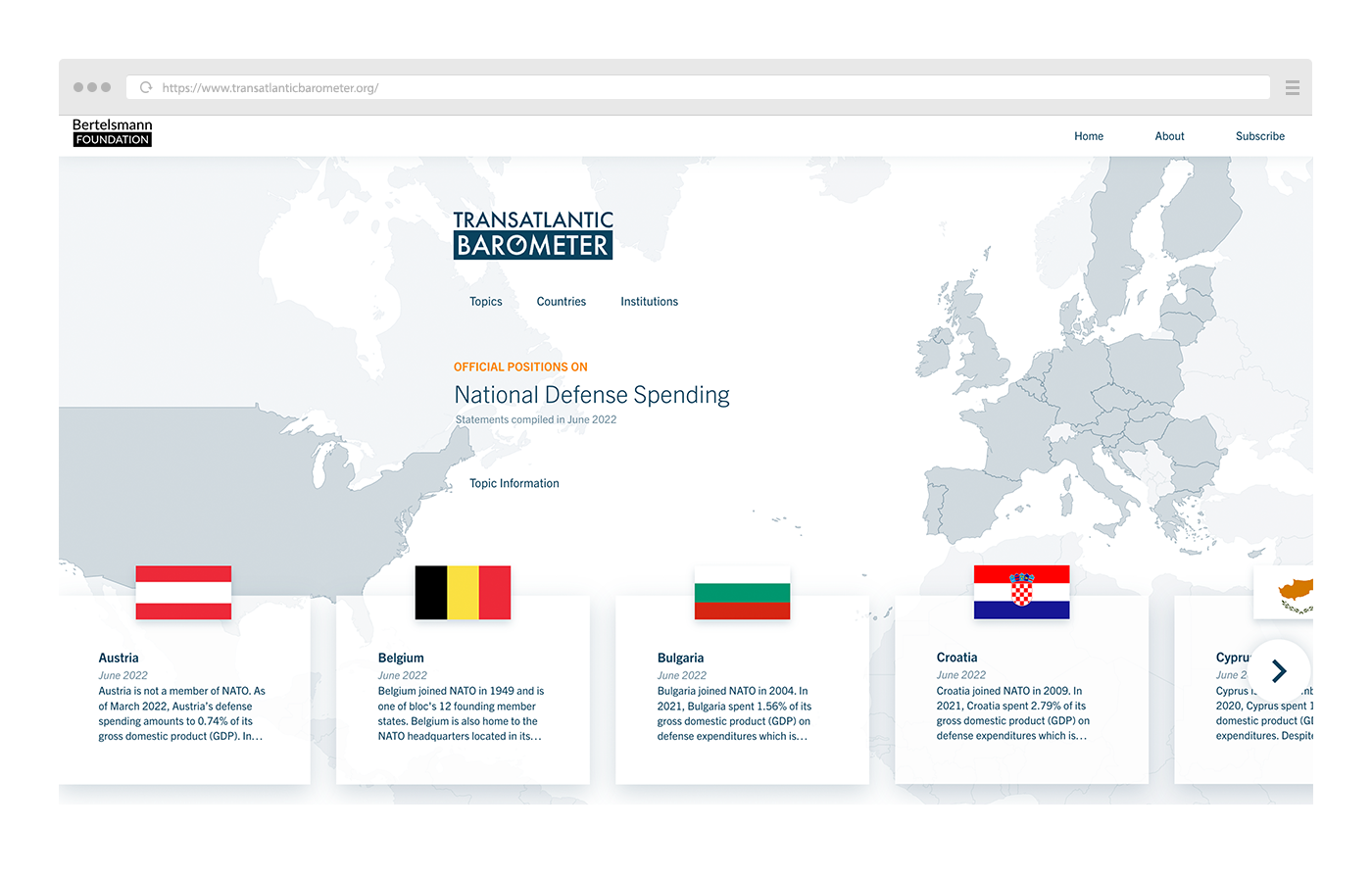
Transatlantic Barometer
The Transatlantic Barometer’s main fixture is a website that provides users with a synopsis of the policy positions and engagement of 31 key transatlantic actors: the United States, Canada, the United Kingdom, and the European Union, as well as its 27 member states.
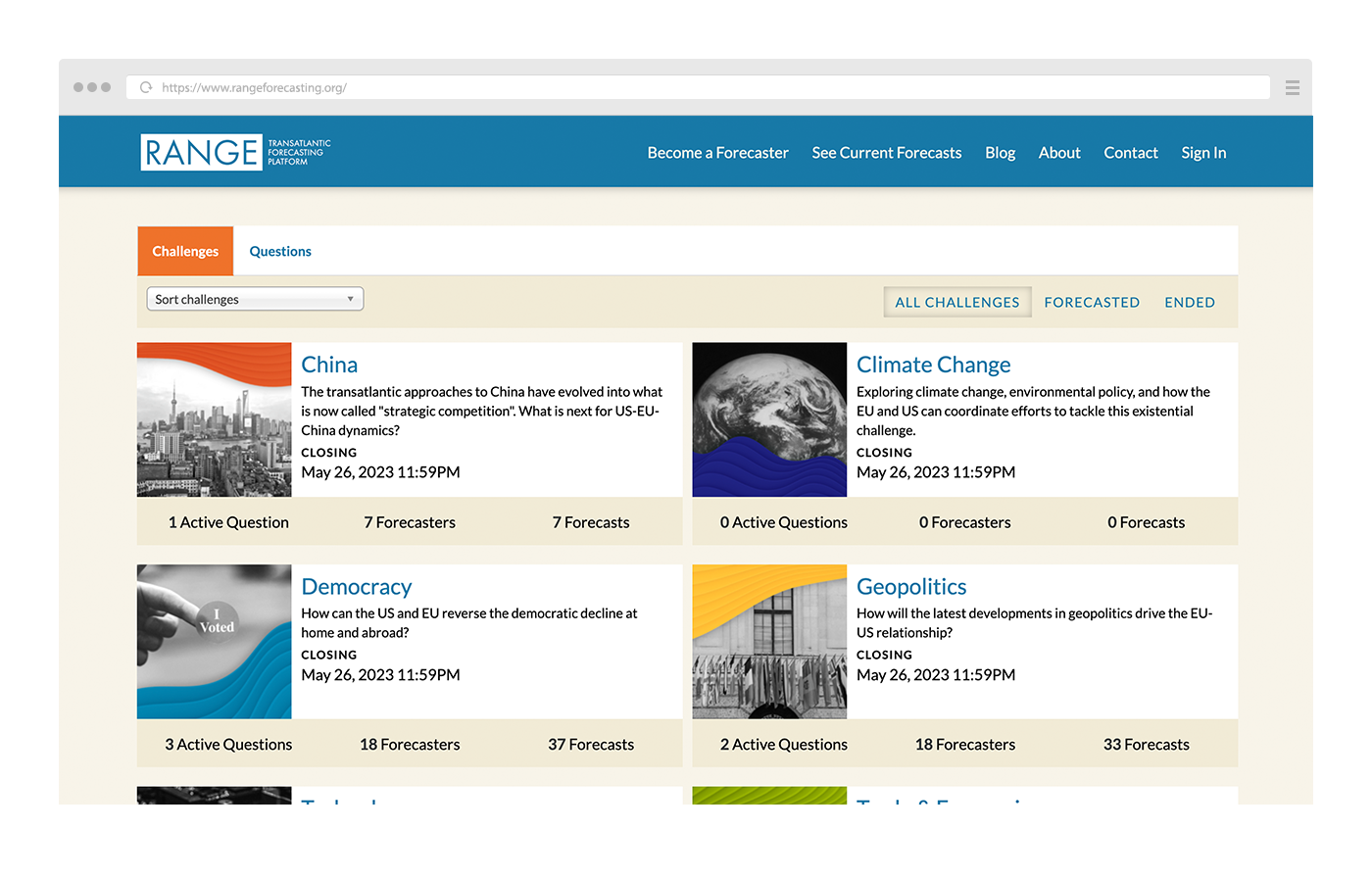
RANGE
RANGE (Rethinking Assumptions in a New Geostrategic Environment) is a crowdsourced forecasting program focused on geopolitics and the transatlantic relationship.
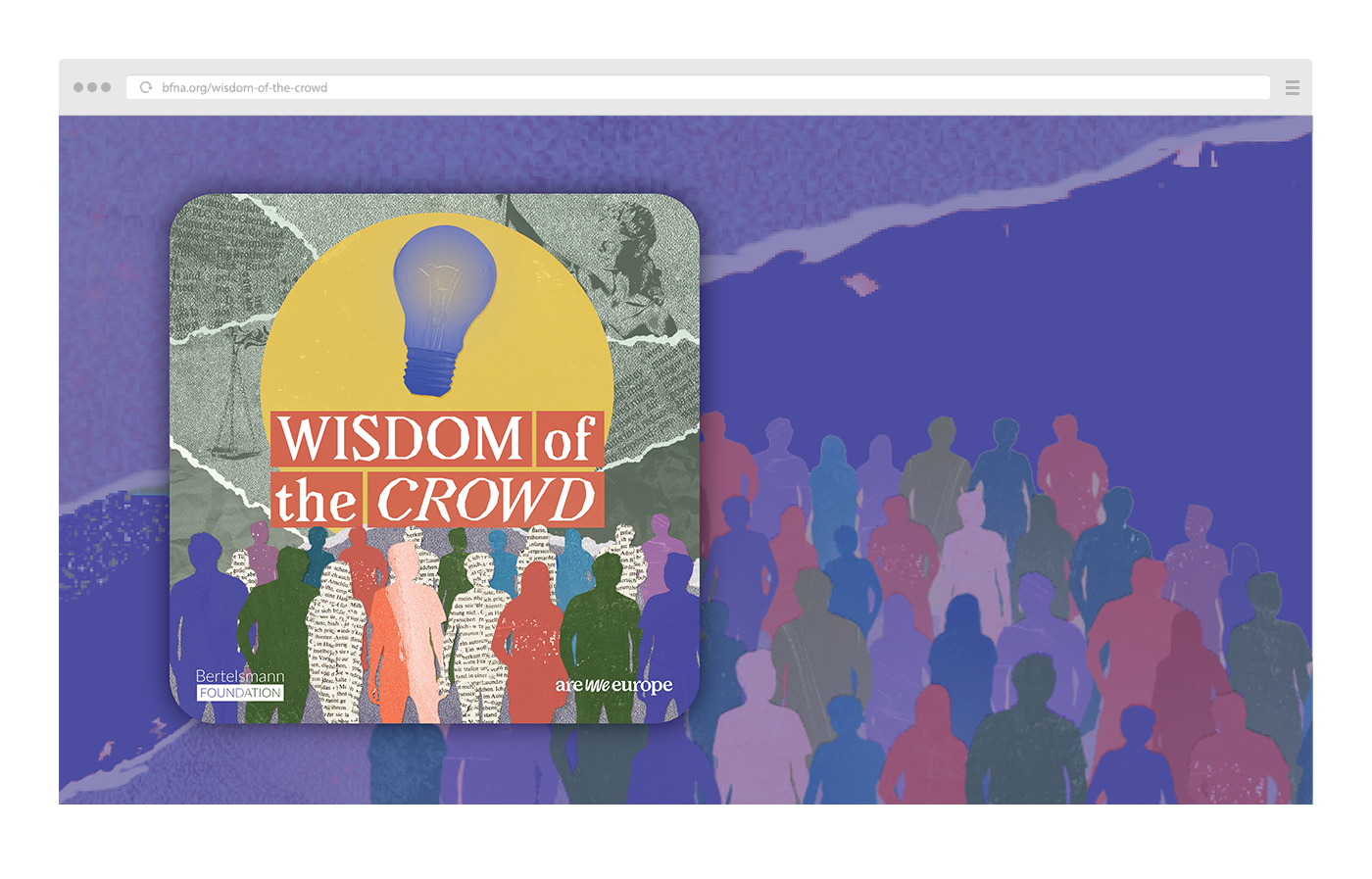
Wisdom of the Crowd
Welcome to “Wisdom of the Crowd”, a podcast miniseries that explores the future of transatlantic relations. From democracy and geopolitics to climate change and technology, we take a closer look at the most pressing issues impacting the transatlantic alliance by interviewing top experts and using a strategy of crowd-sourced forecasting. We don’t just rely on experts and policy makers; we listen to a crowd of forecasters, and YOU, to determine the outcome of future events. We call that “the wisdom of the crowd”. Wisdom of the Crowd is produced by the Bertelsmann Foundation, Are We Europe, and Awe Studio. Sound design is done by Stefano Montali and the podcast artwork is by Tamara Tasić. This series is hosted by Rylie Munn.
Talking Transatlantic Affairs
Talking Transatlantic Affairs is a series of interviews in which folks from the United States and Europe share their thoughts and personal reflections on the transatlantic relationship.
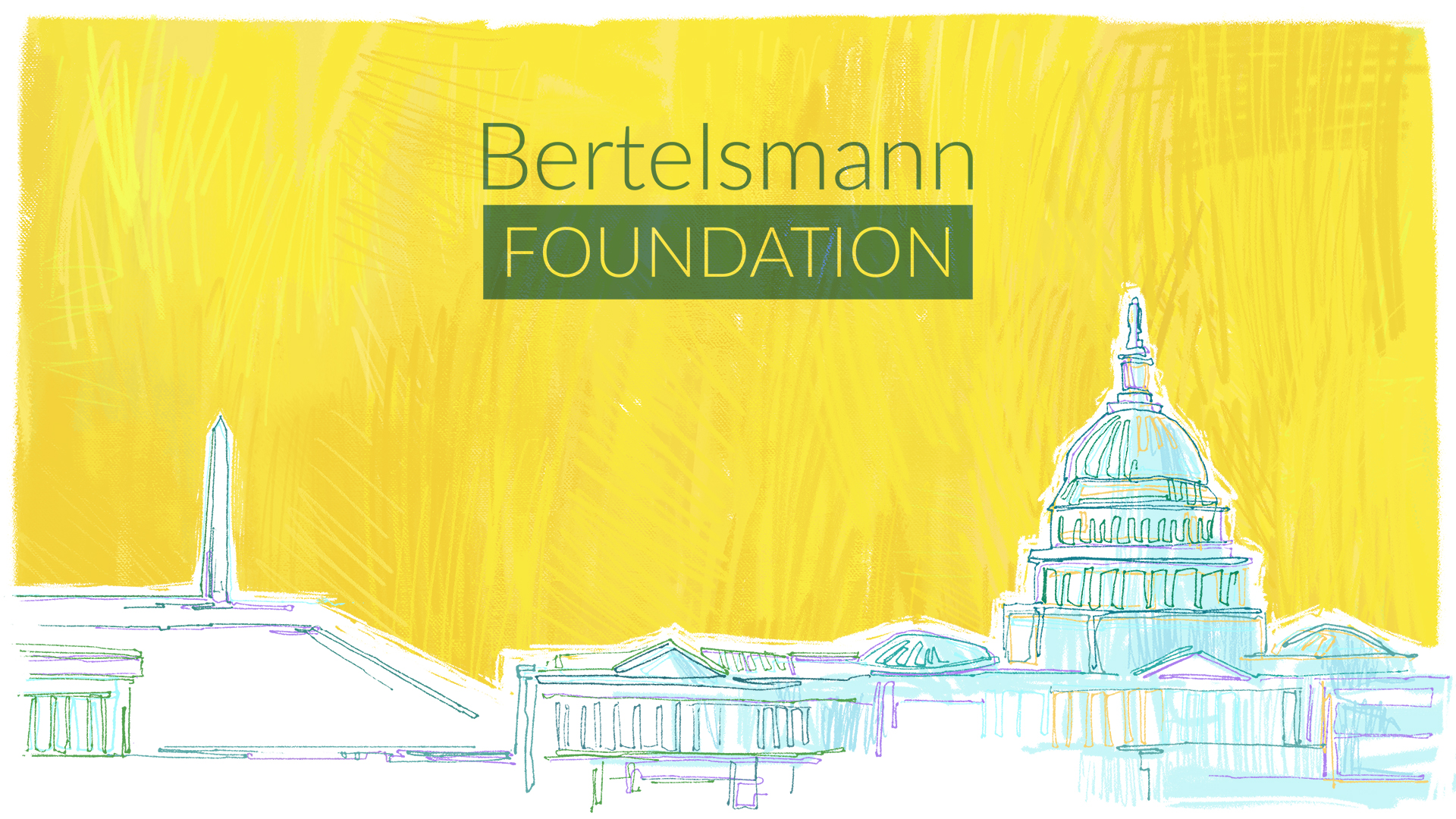
System Updates
System Updates is a reflection of the conversations and debates that spanned the Bertelsmann Foundation Fellowship (BFF) in 2023. Our eleven fellows and two guest authors lay out how the EU and the U.S. can build a future of work that works for all.
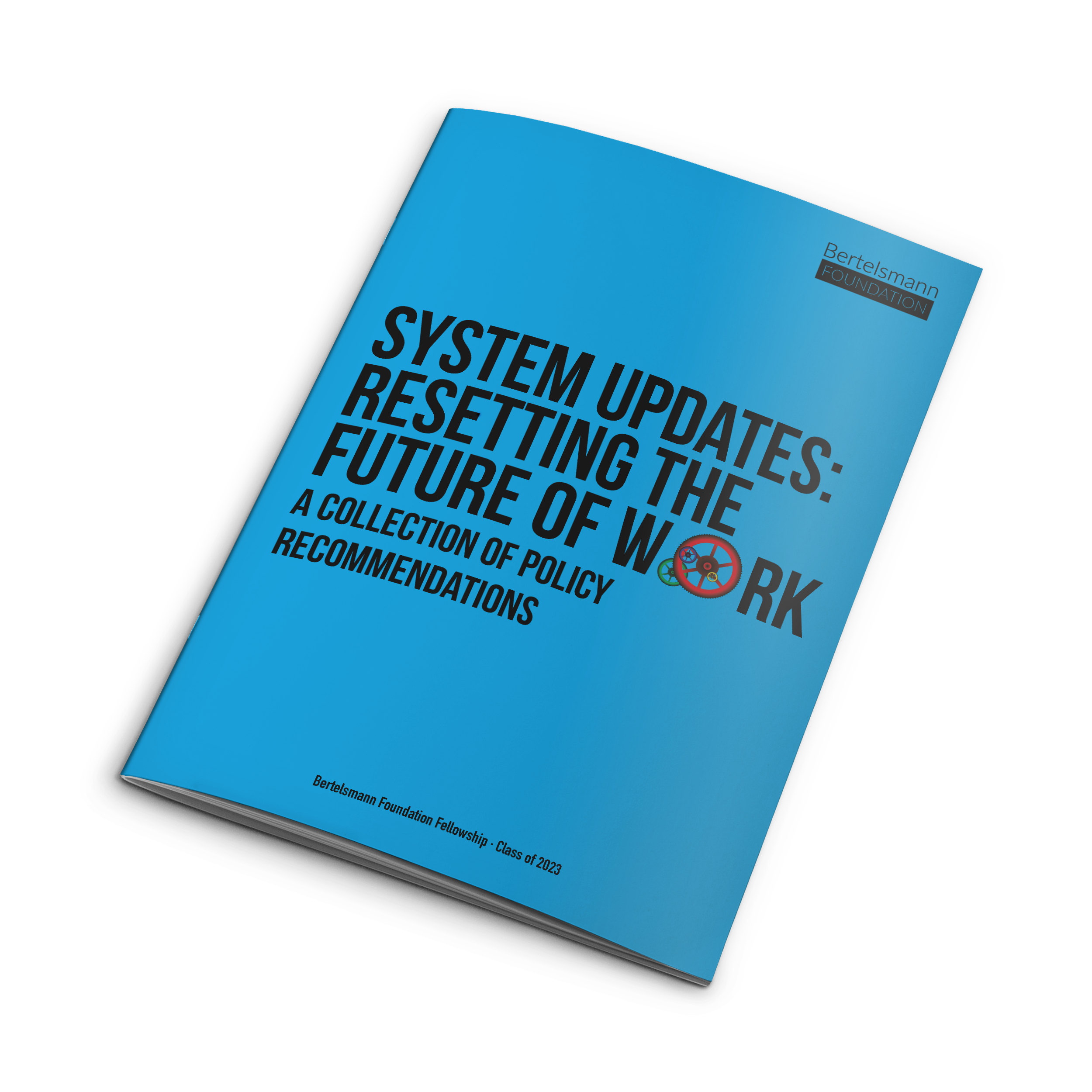
Emerging Ties
Emerging Ties is a reflection of the conversations and debates that spanned the Bertelsmann Foundation Fellowship (BFF) in 2022. Our nine fellows and guest author lay out the ways in which the EU and the U.S. can further engage with developing countries and encourage positive global change.
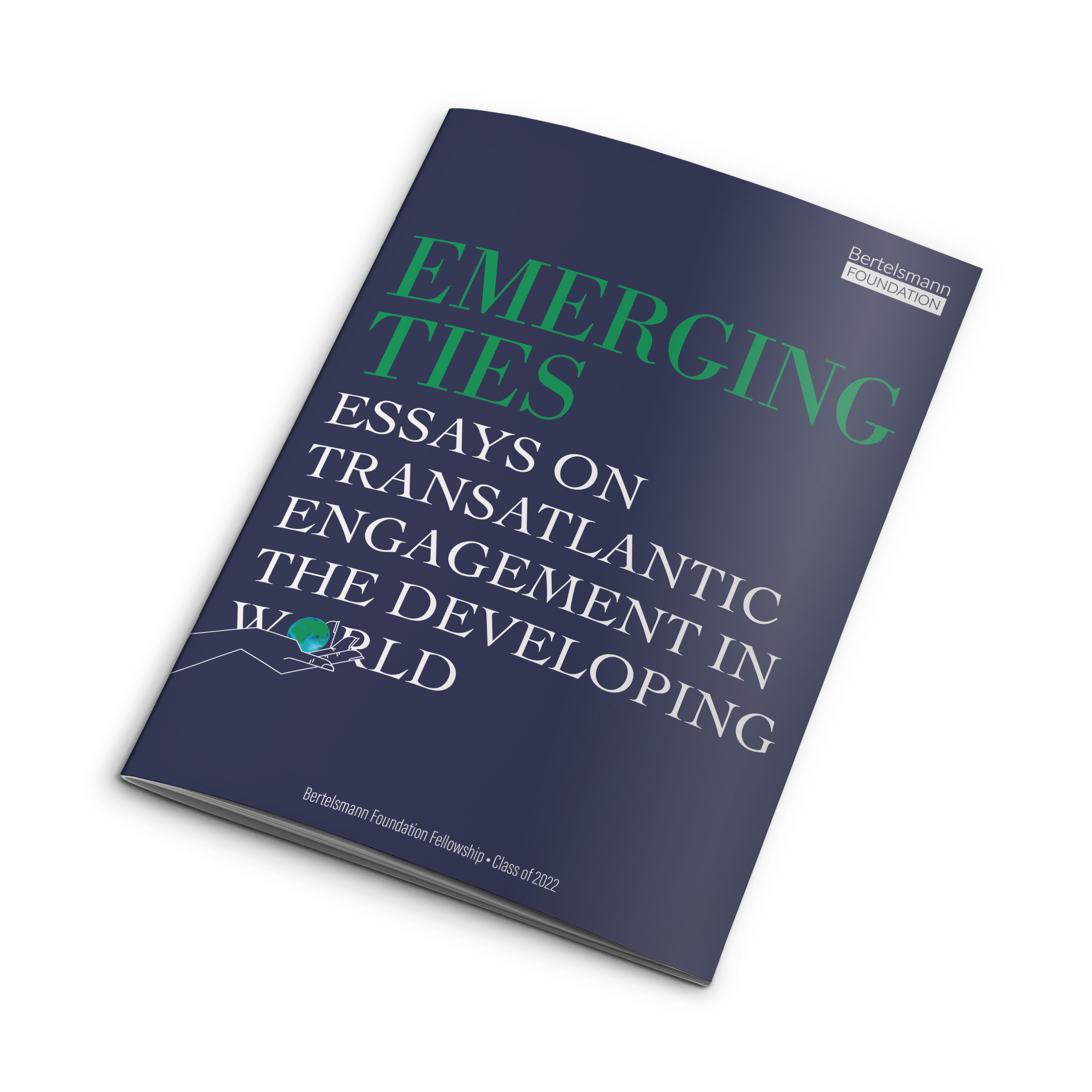
The Policy Prism Newsletter
The Policy Prism is a quarterly newsletter providing the latest on transatlantic legislative news to policymakers on both sides of the Atlantic.
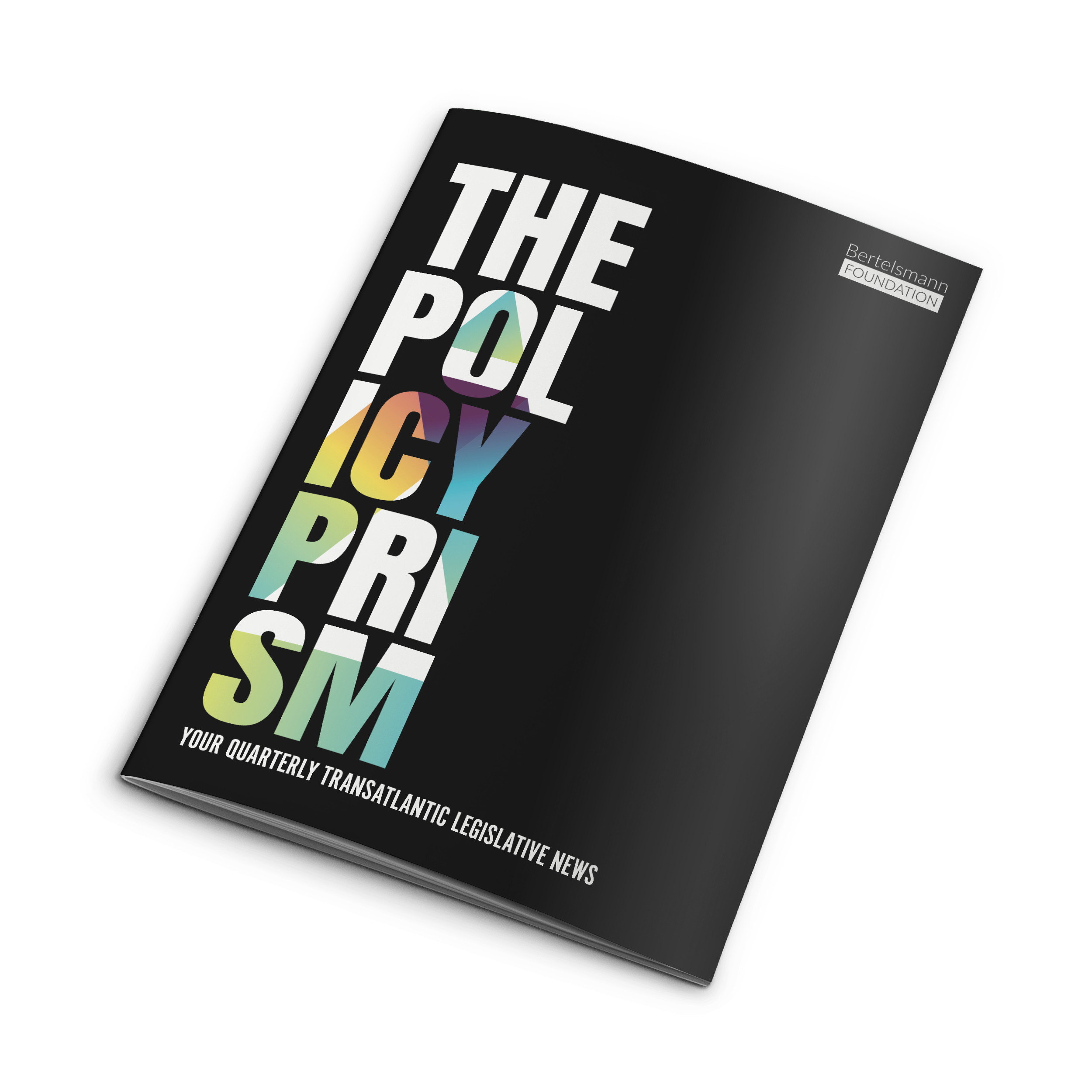
Transatlantic Trends 2022
The geopolitical turmoil of 2022 presents a multitude of challenges for the transatlantic community. From Russia’s invasion of Ukraine and China’s geostrategic ambitions to the worsening climate crisis and democratic backsliding, greater transatlantic cooperation is of paramount importance. In the face of such challenges, the transatlantic community has largely shown resolve, yet divergences in interests among partners remain.
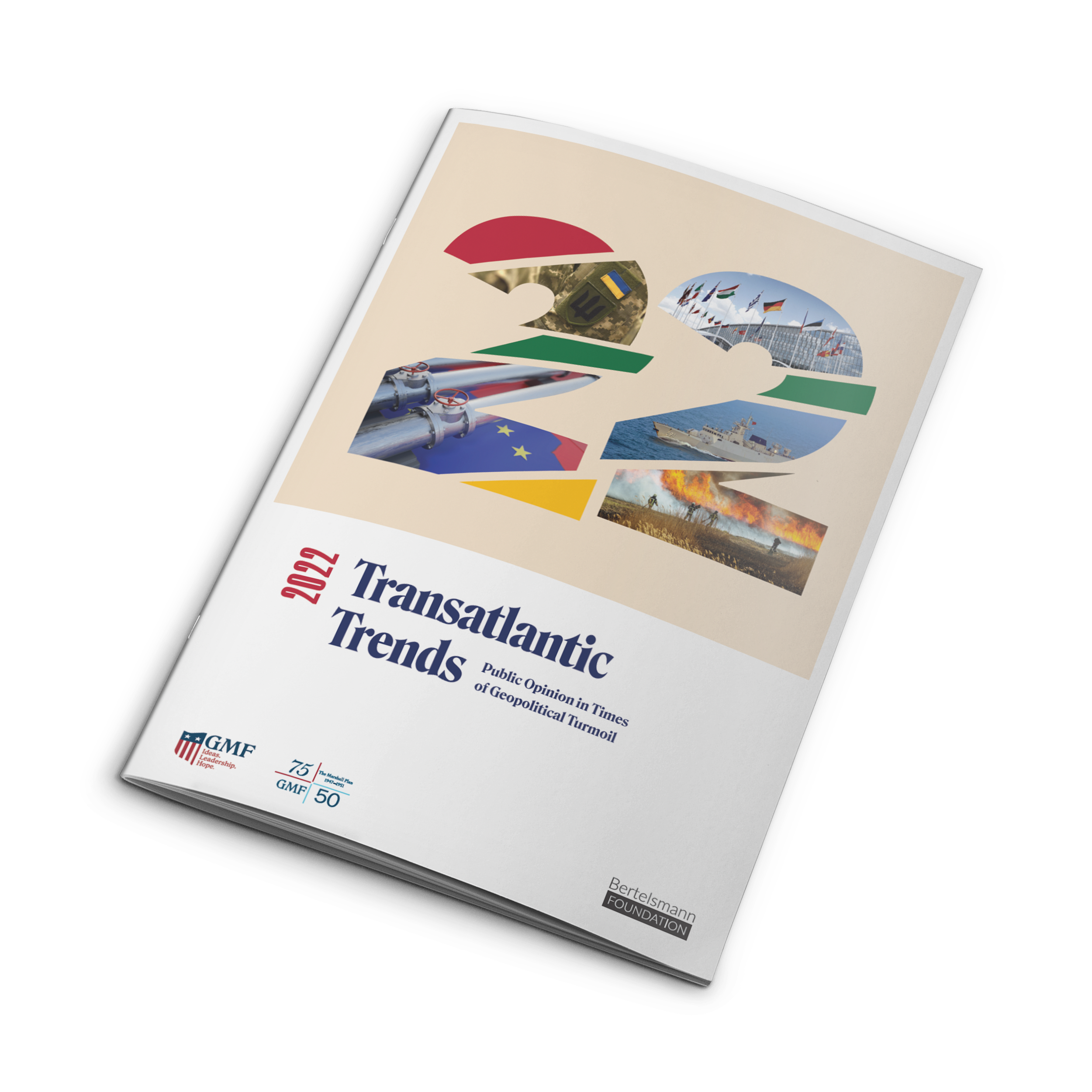

Bridging the Atlantic
Bridging the Atlantic is a 6-part miniseries, created with Are We Europe, that will take stock of transatlantic relations today and examine it beyond the usual touchstones. After a tumultuous four years with the Trump administration, many following the transatlantic relationship are eager to understand how the transatlantic relationship can bounce back and become more resilient in the future. But a reset is perhaps not the right goal.
Cross-Cutting Currents
The U.S. and Europe have an opportunity to engage closely on a broad range of challenges in 2022. To that end, the Bertelsmann Foundation has produced Cross-Cutting Currents, a transatlantic primer, as a foundational and introductory resource for those who seek a better understanding of the transatlantic relationship. This publication addresses the most pressing issues affecting five of the transatlantic community’s key actors—the U.S., Germany, France, Italy, and the UK.
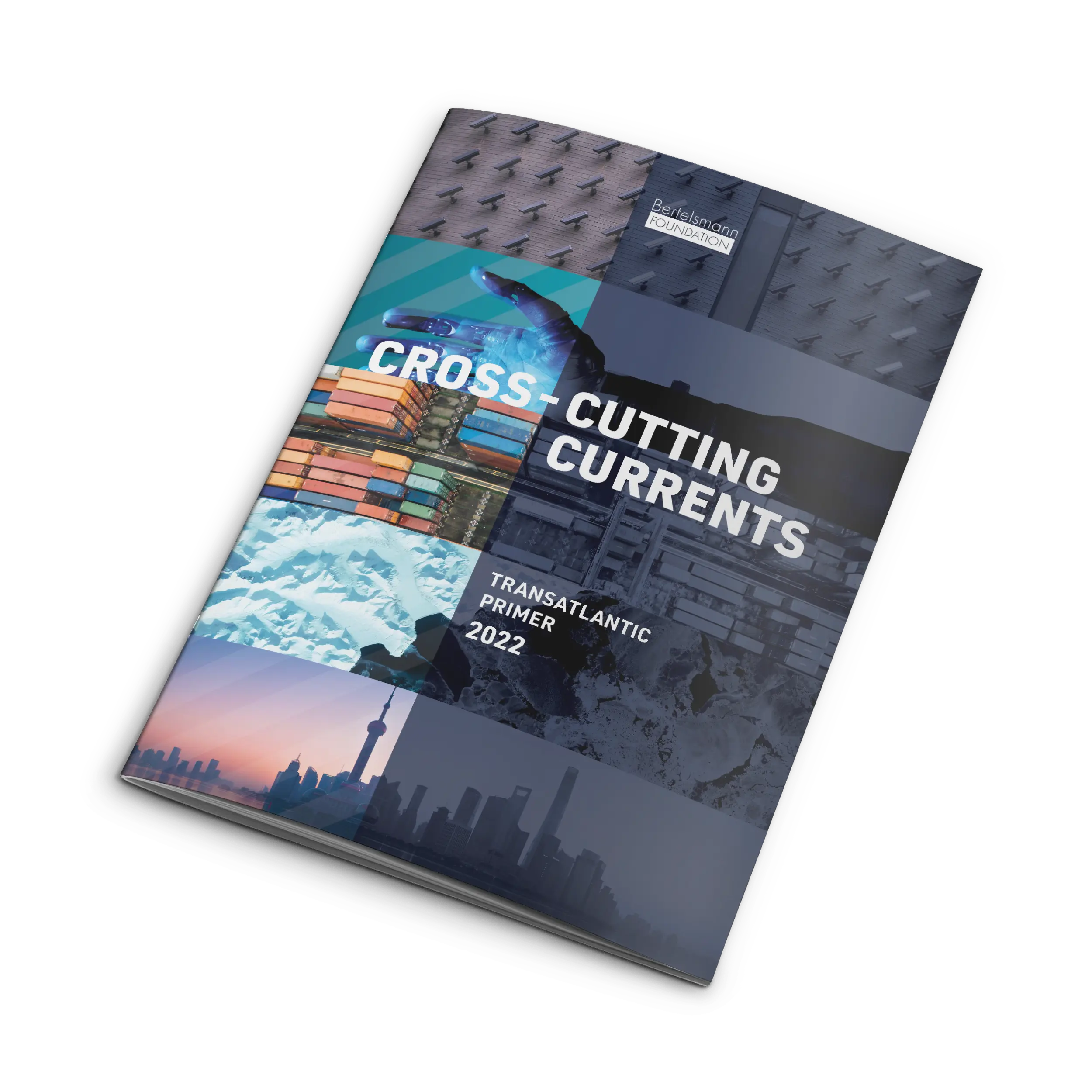
Green Ideas
Wildfires. Blistering temperatures. Hurricanes. Earthquakes. Melting Ice Caps. The natural disasters that will be exacerbated by climate change are numerous. The statistics coming out of every report about what has been dubbed the anthropogenic era describe a very dark future—one that might cause feelings of hopelessness and desperation.
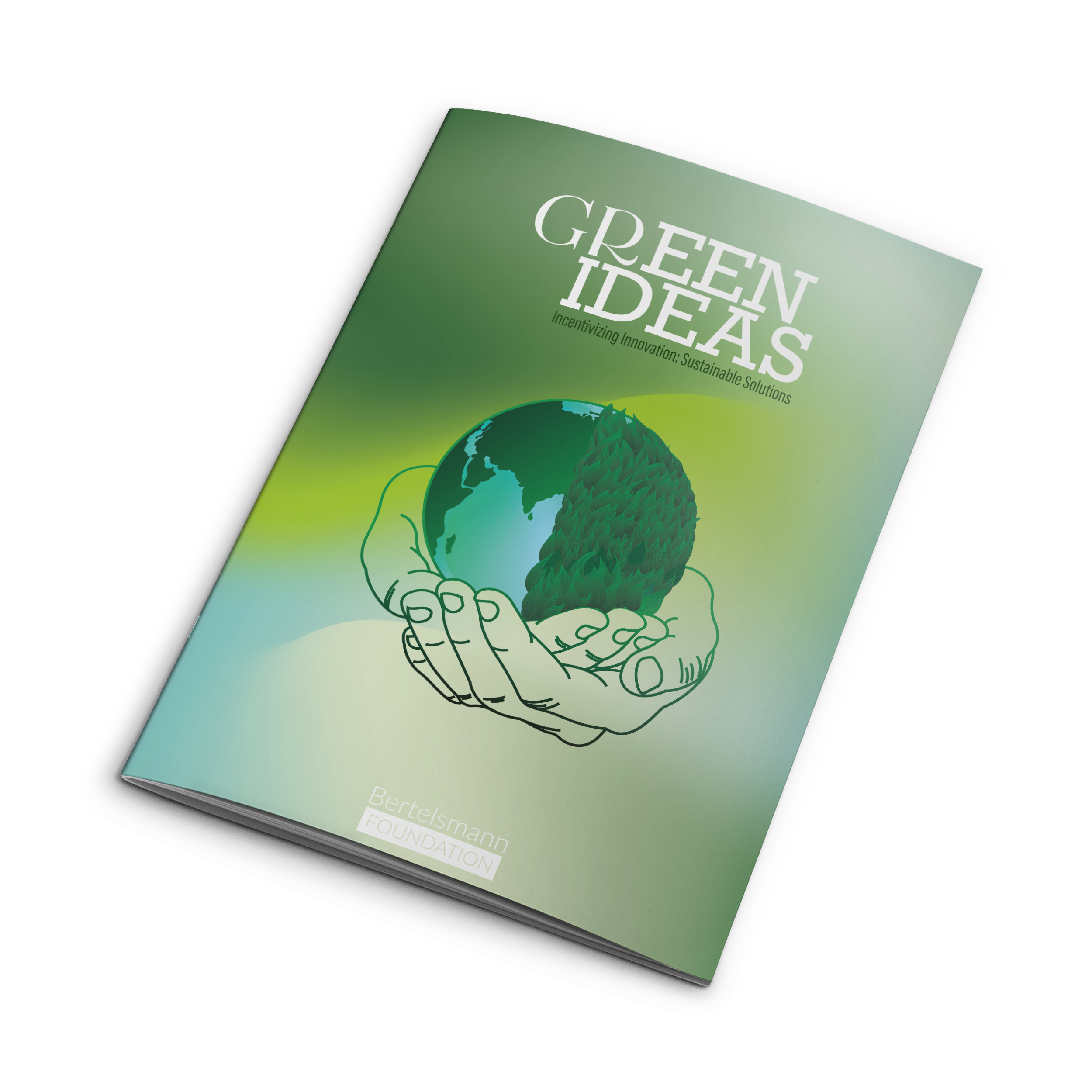
Transatlantic Trends 2021
2021 opens a new chapter for the transatlantic relationship. The change of the U.S. administration as well as the political, economic, and societal implications of the coronavirus pandemic have redefined transatlantic policy dialogues. New priorities have emerged, as the calls for increased cooperation around climate change and common values signal an opportunity for an update of the transatlantic agenda.
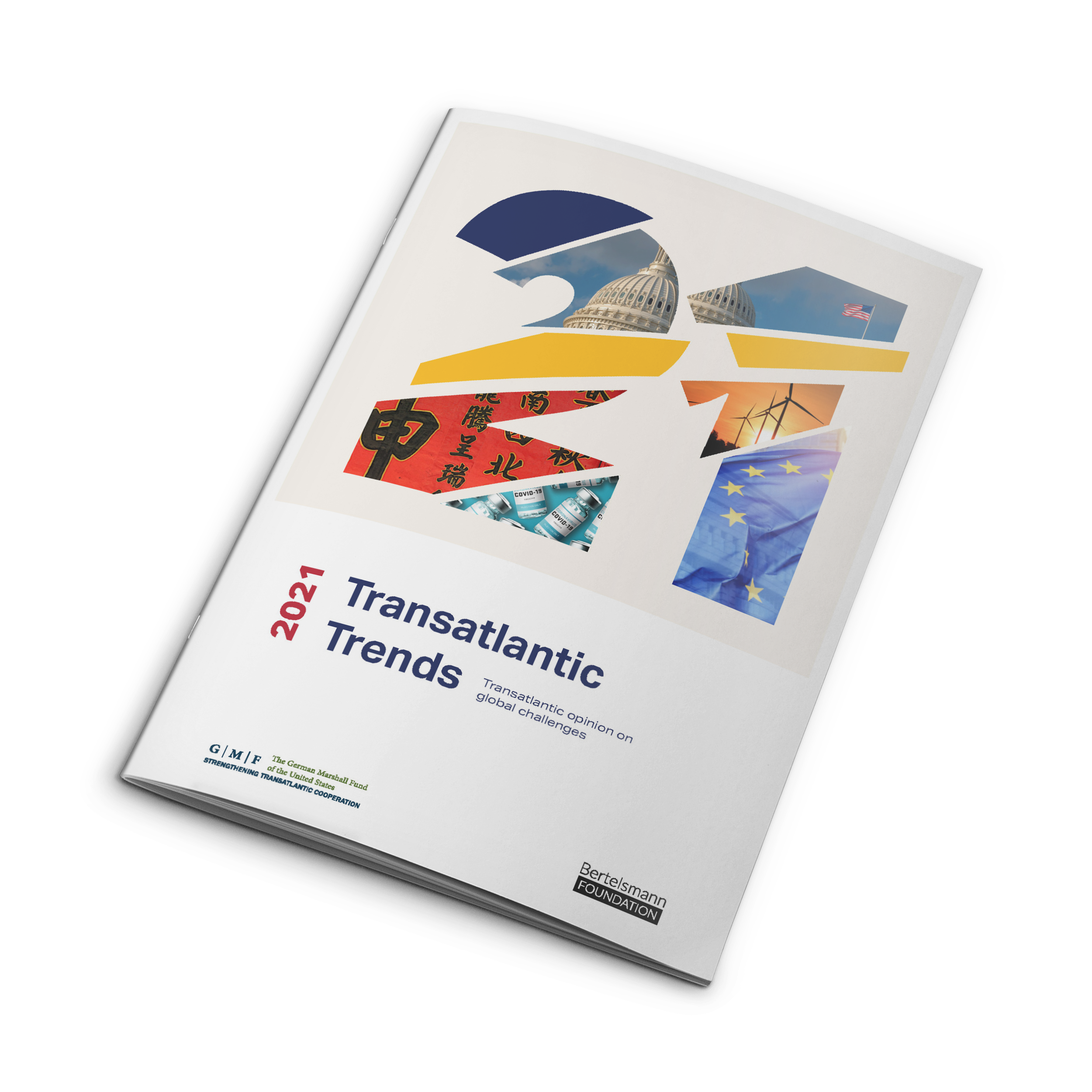
Federalism in Crisis
In the United States and Germany, two countries with federal systems of government, responses to the COVID-19 pandemic have varied considerably. While conflict and dysfunction have embodied the U.S. response, cooperative and unified strategies have underpinned Germany’s approach. Federalism in Crisis explores these contrasting developments by elucidating the key characteristics of both the U.S. and German federal systems and examining how they have impacted responses to the crisis.

Transatlantic Trends 2020
2020 has been marked by an unprecedented series of political, economic, and societal shocks that have tested the resilience of the transatlantic relationship.From the Covid-19 pandemic and its global implications, to regional issues such as the risk of military escalation with Iran, to purely transatlantic matters like the withdrawal of American troops from Germany, the United States and Europe have experienced a multiplicity of crises that challenge the terms of the transatlantic partnership.
